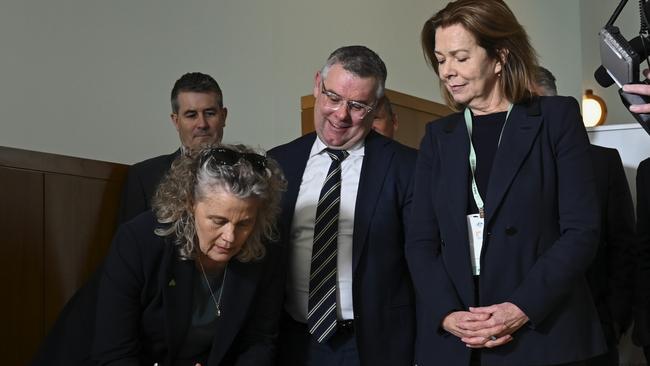Jobs summit achieves “incremental gains”, National Farmers’ Federation says
What did agriculture gain from the Treasury’s big jobs summit? A few things, says the NFF, but don’t expect thousands of workers just yet.
The federal government’s jobs and skills summit has yielded “incremental gains” for the farming sector but failed to address its immediate worker shortage, agriculture’s peak lobby group says.
National Farmers’ Federation president Fiona Simson said last week’s two-day summit “moved the conversation forward and achieved some consensus and momentum”, but the time had come to turn talk into action.

Agriculture Minister Murray Watt announced an “historic” partnership had been struck between government, industry and union groups to form an agriculture working group.
The “tripartite” group will meet monthly for one year to progress changes to skills and training, workplace safety, housing and an expansion of the Pacific Australia Labour Mobility visa scheme.
It will also work towards solving agriculture’s long-term issues such as appropriate visa pathways for workers and increasing training and skills opportunities, which will feed into the summit’s Employment White Paper due to be released in a year.
Ms Simson said the summit’s widely broadcast wins of an increase to the migration cap from 160,000 to 195,000 for two years – plus an additional 8000 for regional Australia – speeding up visa processing times and 180,000 fee-free TAFE places would benefit the regions.
Pensioners and veterans will also be allowed to earn an additional $4000 this financial year without losing any of their pension to boost the nation’s labour supply.
But Ms Simson said not enough focus was given to filling the industry’s immediate worker shortage, which the latest estimate has at 172,000 people.
“While much of the discussion at the summit centred on migration for highly skilled workers – which is undoubtedly a challenge for agriculture – we are still left wondering how we will plug the yawning gap in lower skilled workers,” she said. “We know the PALM isn’t the answer in isolation. We know domestic workers aren’t here in the numbers we need.”
Nationals leader and opposition agriculture spokesman David Littleproud said the summit showed how quickly trade unions have been catapulted into Canberra’s halls of power.
“They want a seat at the table to bring in draconian laws that give them more power,” he said, adding the Government needed to bring back the Coalition’s ag visa if it wanted to start filling agriculture’s backlog of job advertisements.
Despite representing about 13 per cent of employees nationwide, unions were heavily represented at the summit.
Of those invited to represent agriculture at the 100-ticket event, representatives from the Australian Workers’ Union, Australian Meat Industry Employees Union and United Workers Union were in attendance alongside Fiona Simson, JBS Australia chief executive Brent Eastwood, former chair of the National Agricultural Labour Advisory Committee John Azarias and Joanna Howe, an associate professor in law at the University of Adelaide who has spent years investigating the Australian horticulture industry’s labour shortage.





